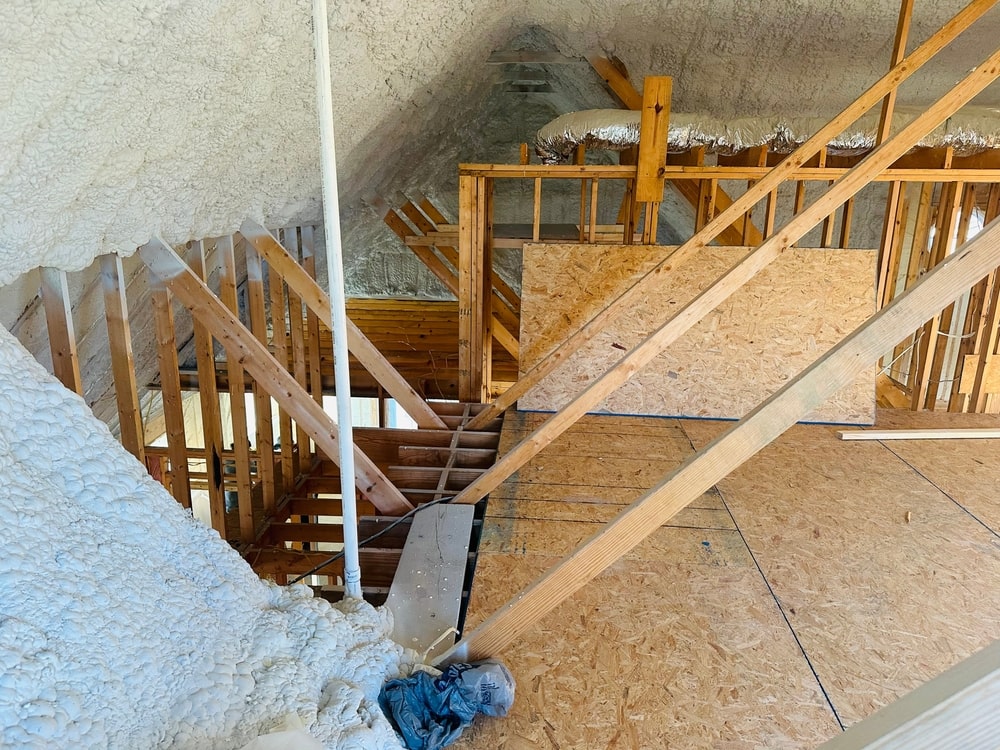When it comes to spray foam insulation in Baton Rouge, homeowners are often faced with a key decision: should they go with open‑cell or closed‑cell spray foam? Both options offer impressive energy efficiency and performance benefits, but the right choice depends on your home’s structure, budget, and insulation goals—especially in Louisiana’s hot, humid climate.
Understanding Open‑Cell Spray Foam
Open‑cell spray foam is a soft, flexible material with a spongy texture. As the name suggests, its cells are not completely encapsulated, which allows air to fill the spaces inside. This characteristic makes it lighter and less dense than its closed-cell counterpart.
One of the standout features of open-cell foam is its ability to expand significantly upon application, making it ideal for reaching into tight corners, wall cavities, and small crevices. This creates a highly effective air seal, helping to prevent drafts and improve overall comfort in the home.
In humid regions like Louisiana, open-cell foam also has the benefit of permeability. It allows moisture to pass through, which can be a double-edged sword—it doesn’t trap water, but it also means it needs to be paired with a vapor barrier in areas prone to moisture buildup. Still, its breathability can help with moisture management and indoor air quality when properly installed.
Understanding Closed‑Cell Spray Foam
Closed‑cell spray foam differs in both structure and performance. Its cells are completely closed and packed tightly together, making it denser, stronger, and more resistant to moisture. Because of this, closed-cell foam creates an excellent vapor barrier and offers higher R-values per inch than open-cell—ideal for maximizing energy efficiency.
In Louisiana homes where humidity, rain, and flooding are common concerns, closed-cell spray foam can be a better fit for insulating crawlspaces, attics, or basements. It adds structural rigidity to walls and can serve as a protective barrier against moisture intrusion.
However, closed-cell foam is more expensive due to its higher material costs and labor intensity. It also doesn’t expand as much as open-cell, meaning it may require more careful preparation during installation.
Comparing Performance in Louisiana’s Climate
Louisiana’s hot, humid conditions call for an insulation system that can manage air infiltration, moisture, and thermal resistance all at once. Both open‑cell and closed‑cell foams help achieve these goals, but in different ways.
- Thermal insulation: Closed-cell foam provides a higher R-value per inch, making it better for areas with space constraints where maximizing insulation is critical.
- Air sealing: Both types seal effectively against air leaks, though open-cell’s expansive nature can help reach irregular spaces more easily.
- Moisture control: Closed-cell shines in high-moisture areas due to its vapor barrier qualities. Open-cell, while more breathable, may require additional layers to manage moisture effectively.
- Noise reduction: Open-cell foam tends to perform better acoustically, making it a popular choice for interior walls and ceilings.
For homes in Baton Rouge, where flooding and high humidity are frequent, closed‑cell foam is often recommended for below-grade applications and areas exposed to the elements. Open‑cell foam, on the other hand, is a strong choice for interior walls and rooflines when paired with proper moisture control measures.
Cost Considerations
Budget plays a big role in determining which foam is best. Open-cell spray foam is more affordable and offers great performance for its price, especially in interior spaces. Closed-cell spray foam, while more costly upfront, may lead to bigger savings on energy bills and fewer moisture-related repairs over time.
At PolyCo Spray Foam, we help homeowners in Baton Rouge choose insulation that makes sense for both their home and wallet. Our team evaluates your building structure, climate exposure, and energy goals to deliver the best solution—whether that’s open‑cell, closed‑cell, or a combination of both.
The Verdict: Which Should You Choose?
There’s no one-size-fits-all answer. The best type of spray foam insulation in Baton Rouge depends on your specific needs:
- Choose open‑cell spray foam for affordability, sound absorption, and interior wall coverage.
- Choose closed‑cell spray foam for high moisture resistance, structural strength, and insulation in tight or exterior spaces.
Ready to Insulate Your Home the Smart Way?
If you’re considering spray foam insulation in Baton Rouge, trust PolyCo Spray Foam to guide you through the process. Our experts provide professional recommendations based on local experience and proven results. Contact us today for a free consultation—let’s make your Louisiana home more comfortable, efficient, and protected year-round.

